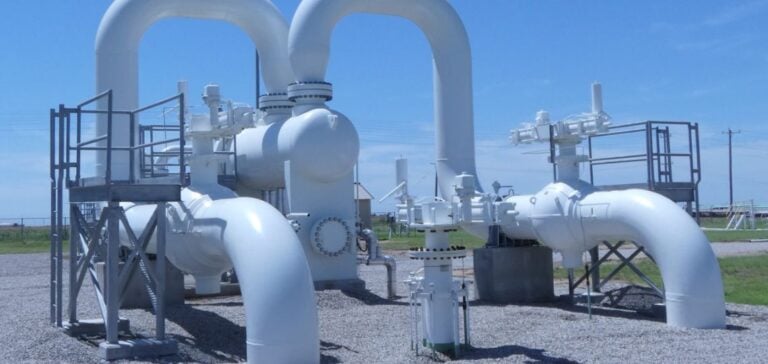Southern Star Central Gas Pipeline has submitted a request to the Federal Energy Regulatory Commission (FERC) for authorization to expand its natural gas transportation capacity through a compression station project. This initiative aims to meet the growing natural gas demand in Missouri and Kansas, particularly in key areas like Springfield, Joplin, Kansas City, and Topeka.
The project, named Cedar Vale Compressor Station Project, includes the construction of a 6,091-horsepower compression station in Osage County, Oklahoma. According to Southern Star, this new infrastructure will add approximately 98,000 dekatherms per day (Dt/d) of firm capacity in the market delivery area and 35,000 Dt/d of incremental capacity in the production area.
Energy Context and Regional Needs
The increased demand for natural gas is directly linked to the ongoing energy transition in the region. Many coal-fired power plants are nearing the end of their lifecycle and are being replaced by natural gas facilities, which offer advantages in terms of efficiency and costs. Matt McCoy, Director of Commercial Services at Southern Star, emphasized that this shift is a logical response to the obsolescence of coal infrastructure, which would require substantial investments for modernization.
Supply and Logistics
The project will rely on Southern Star’s Straight Blackwell line, which connects Texas County (Oklahoma) to the Blackwell Compressor Station in Kay County (Oklahoma). The gas supply will primarily come from the SCOOP/STACK plays, the Woodford Shale, and the Permian Basin. While Southern Star is not directly connected to the Permian, flows from this basin are transported via interconnected pipelines.
Shipper Commitments and Price Impacts
After a binding open season phase, Southern Star signed agreements with shippers securing approximately 88,000 Dt/d of incremental capacity in the market area and 20,000 Dt/d in the production area. An additional open season period is ongoing for the remaining capacity, with a deadline set for January 31.
This initiative also addresses shippers’ concerns about price volatility during winter storms. For instance, Southern Star Texas-Oklahoma-Kansas spot prices nearly reached $30 per MMBtu in December 2022, and extreme spikes were recorded during the 2021 winter storm, reaching up to $623/MMBtu.
Next Steps
The project is currently awaiting FERC approval, with an intervention period open until December 24. If approved, it will significantly strengthen the region’s energy infrastructure while ensuring greater price stability amid fluctuating demand and extreme weather conditions.






















